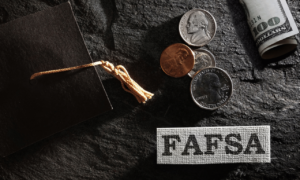Financial Aid Private Schools play a pivotal role in expanding educational opportunities for students. Moreover, by providing financial assistance, these schools empower deserving individuals to pursue their academic aspirations, regardless of their financial circumstances. Additionally, Financial Aid Private Schools not only enable access to quality education but also foster an inclusive environment where students can thrive. Furthermore, the availability of financial aid programs ensures that talented students can fully explore their potential and contribute to society’s progress. Overall, these schools bridge the gap between financial constraints and educational aspirations, opening doors to a brighter future.
List of Top Financial Aid Private Schools:
Table of Contents
Introduction:
When it comes to pursuing higher education at private schools, one major concern for many students and families is the cost. However, there are several prestigious private schools that offer generous financial aid packages to help alleviate the financial burden. In this guide, we will explore some of the top Financial Aid Private Schools, answer common questions about financial aid, and provide valuable insights to help you navigate the process effectively.
I. Understanding Financial Aid at Private Schools
A. What is Financial Aid?
Financial aid refers to monetary assistance provided to students, thereby helping them afford the costs associated with their education. It encompasses various forms of support, including scholarships, grants, work-study programs, and loans. By actively reducing the financial barriers, financial aid enables students to pursue their educational goals. In other words, it serves as a vital resource, facilitating access to quality education for students who may otherwise face financial limitations.
B. Types of Financial Aid
- Scholarships
- Grants
- Work-Study Programs
- Loans
C. what is Financial Need Assessment?
Financial need assessment is a comprehensive process that evaluates a student’s financial circumstances, determining their eligibility for financial aid. By reviewing factors such as income, assets, family size, and other relevant financial information, institutions gain a thorough understanding of the student’s financial situation. Through this assessment, they actively determine the level of financial assistance required to ensure that the student can pursue their education effectively. In essence, financial need assessment serves as a crucial step in allocating resources and providing targeted aid to deserving students.
II. Importance of Financial Aid at Private Schools
A. Enhancing Access to Education
Enhancing access to education is a key benefit of financial aid at private schools. By providing financial assistance, these schools actively break down barriers that may impede students’ educational opportunities. Consequently, students from diverse backgrounds can avail themselves of quality education, fostering inclusivity and promoting equal access to academic resources and opportunities.
B. Enabling Socioeconomic Diversity
Financial aid at private schools actively enables socioeconomic diversity. By offering financial assistance to students from various economic backgrounds, these schools actively promote inclusivity and equal opportunities. This fosters a diverse student body, allowing students from different socioeconomic statuses to engage in a rich and inclusive learning environment, fostering a broader perspective and understanding of the world.
C. Encouraging Excellence and Talent
Financial aid at private schools actively encourages excellence and talent. By providing financial assistance to deserving students, these schools actively recognize and support their exceptional abilities and potential. Students are not only motivated to excel academically and pursue their passions but also contribute to a vibrant and dynamic learning community where we nurture and celebrate talent. Additionally, financial aid programs often offer opportunities for students to engage in extracurricular activities, research, and other enriching experiences, further fostering their personal and academic growth.
III. Factors to Consider When Choosing a Financial Aid Private School
A. Eligibility Criteria:
Eligibility criteria play a crucial role in determining a student’s qualification for financial aid at private schools. These criteria actively establish the requirements and qualifications students must meet to be considered for financial assistance. Factors such as academic performance, financial need, and specific program requirements are carefully evaluated to determine eligibility. Transition words like “Furthermore” or “Moreover” can be used to provide additional information or emphasize the importance of eligibility criteria in the financial aid process.
B. Financial Aid Packages:
Financial aid packages are instrumental in providing financial assistance to students at private schools. These packages actively outline the types and amounts of aid a student will receive, including scholarships, grants, work-study opportunities, and loans. Furthermore, they specify the terms and conditions of the aid, such as duration and renewal requirements. Transition words like “Additionally” or “Furthermore” can be used to introduce additional details about the components and considerations of financial aid packages.
C. Reputation and Academic Excellence:
Reputation and academic excellence are vital factors to consider when evaluating financial aid private schools. These schools actively cultivate a strong reputation and academic standing, which not only enhances their credibility but also reflects the quality of education they offer. Moreover, renowned institutions often attract top-notch faculty and provide extensive resources and opportunities for students. Transition words like “Furthermore” or “Moreover” can be used to emphasize the significance of reputation and academic excellence in the decision-making process when choosing a financial aid private school.
D. Campus Culture and Support Services:
Campus culture and support services actively contribute to the overall student experience at financial aid private schools. These schools prioritize fostering a positive and inclusive environment that encourages student growth and success. Additionally, they provide a range of support services, such as academic advising, career counseling, and mental health resources, to ensure students receive comprehensive assistance throughout their educational journey. Transition words like “In addition” or “Moreover” can be used to highlight the importance of campus culture and support services in creating a supportive and enriching atmosphere for students.
IV. Top Financial Aid Private Schools:
Here is list of top 10 financial aid private schools.
California Institute of Technology
Washington University in St. Louis
V. Tips for Maximizing Financial Aid Opportunities:
A. Start Early and Plan Ahead:
To optimize your financial aid opportunities, it is crucial to start early and plan. Research scholarships, understand deadlines, gather financial documents, and complete the FAFSA promptly. Seek guidance from financial aid offices and maintain academic excellence throughout. Additionally, staying organized and proactive will enhance your chances of securing financial assistance for your education.
B. Research and Explore Available Options:
To effectively navigate the financial aid landscape, it is essential to actively research and explore the available options. Utilize online resources, scholarship databases, and school websites to identify potential sources of financial assistance. Furthermore, consider the specific requirements, deadlines, and eligibility criteria associated with each option to make informed decisions and maximize your chances of securing financial aid.
C. Complete the FAFSA (Free Application for Federal Student Aid):

Completing the FAFSA (Free Application for Federal Student Aid) is a critical step in accessing financial aid. Actively fill out the FAFSA form as soon as it becomes available, ensuring accuracy and providing all necessary information. Additionally, be mindful of deadlines and gather required documents, such as tax returns and financial records, to complete the application successfully. Moreover, seek assistance from school counselors or financial aid offices for guidance throughout the process.
D. Seek Guidance from Financial Aid Offices and Counselors:
Seeking guidance from financial aid offices and counselors is crucial in navigating the complexities of the financial aid process. Actively reach out to these professionals for support, clarifications, and personalized advice. They can provide valuable insights, assist with understanding eligibility criteria, and help you make informed decisions about available financial aid options. Additionally, they can guide you through the application process, ensuring that you submit accurate and complete information. Moreover, staying in touch with them throughout your educational journey can help you access ongoing assistance and stay informed about any updates or changes in financial aid programs.
E. Maintain Academic Excellence and Extracurricular Involvement:
Maintaining academic excellence and active involvement in extracurricular activities are key factors in securing financial aid. Strive for high academic performance and consistently demonstrate your dedication to learning. Moreover, actively participate in extracurricular pursuits, such as clubs, sports, or community service, as they showcase your well-roundedness and commitment to personal growth. Additionally, transition words like “Furthermore” or “Moreover” can be used to emphasize the importance of maintaining academic excellence and extracurricular involvement in the context of securing financial aid.
VI. Frequently Asked Questions about Financial Aid Private Schools
A. Can I apply for financial aid if my family has a high income?
Yes, you can still apply for financial aid even if your family has a high income. Financial aid programs often consider factors beyond income, such as assets, family size, and other expenses, to determine eligibility. Additionally, transition words like “Furthermore” or “Moreover” can be used to provide additional information or emphasize the inclusiveness of financial aid programs.
B. Is financial aid renewable each year?
Yes, financial aid is often renewable each year, but it is important to review the specific terms and conditions of the aid package. Most financial aid programs require students to meet certain academic and financial criteria to maintain eligibility. Transition words like “However” or “Additionally” can be used to introduce additional considerations or conditions related to the renewal of financial aid.
C. What factors can impact my eligibility for financial aid?
Several factors can impact your eligibility for financial aid. These include your family’s income, assets, household size, the number of family members attending college, and academic performance. Transition words like “Moreover” or “Furthermore” can be used to introduce additional factors or emphasize the complexity of the eligibility determination process.
D. Are there any scholarships specifically for certain majors or fields of study?
Yes, there are scholarships specifically tailored for certain majors or fields of study. Many organizations, institutions, and foundations offer scholarships to support students pursuing education in specific disciplines. Transition words like “Furthermore” or “Moreover” can be used to provide additional examples or emphasize the range of scholarship opportunities available for different majors or fields of study.
E. Can I negotiate my financial aid package?
Yes, it is possible to negotiate your financial aid package. You can actively engage in conversations with the financial aid office to discuss your circumstances, provide additional information, or address any discrepancies that may affect your aid. Transition words like “Furthermore” or “Additionally” can be used to provide additional insights or emphasize the importance of proactive communication in negotiating financial aid packages.
Conclusion:
Financial Aid Private Schools, therefore, actively contribute to breaking down financial barriers and enabling students to pursue their educational goals. Moreover, by researching and exploring available options, students can identify the schools that align with their needs. Additionally, through careful planning and proactive engagement, students can navigate the financial aid process effectively, increasing their chances of accessing the necessary support for their educational journey. Furthermore, staying informed about deadlines, eligibility criteria, and application requirements will help students make informed decisions and seize opportunities for financial assistance.
FAQs:
What is the most financial aid a student can get?
The maximum amount of financial aid a student can receive varies depending on factors such as their financial need, the cost of attendance, and available aid programs.
Who provides the biggest amount of financial aid?
Various entities provide significant amounts of financial aid, including federal and state governments, private organizations, universities, and colleges.

